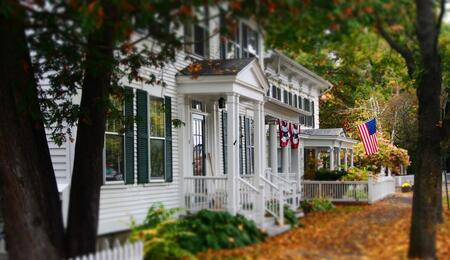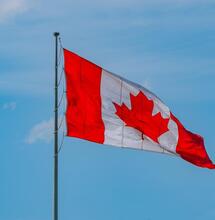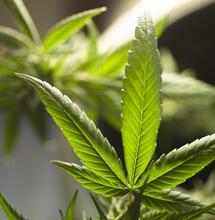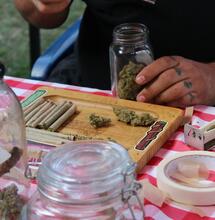Vermont Launches Legal Weed Sales

Three stores opened in Vermont over the weekend, marking the official start of the recreational marijuana market in the Green Mountain state. The "soft opening" weekend inaugurates Vermont as the 15th state where it's now possible to buy legal weed in the U.S.
The three retailers that opened Saturday, Oct. 1, included CeresMED in Burlington, Mountain Girl Cannabis in Rutland, and FLORA Cannabis in Middlebury. A fourth operator licensed for recreational sales has not been able to launch for the slow weekend rollout, reports the Associated Press.
Vermont joins 14 other states in the U.S. that currently have operational recreational use markets. Four more states, including Connecticut, New York, Rhode Island, and Virginia, as well as Washington D.C., are in the process of preparing to launch legal sales.
Local newspapers reported that queues formed quickly and comprised hundreds of people on the grand opening at Ceres in Burlington, the most populous city in Vermont, an hour's drive from the border with Canada.
"Ceres staff walked the queue to let people know they'd need to show identification upon entering the store, but things were calm and orderly. There was no police presence, there was no traffic jams," writes the Burlington Free Press.
With Vermont having legalized medicinal use in 2004, Ceres has been in business for about a decade. It has been easier for the company to get started because of its established infrastructure.
Mountain Girl Cannabis, owned by Ana and Josh MacDuff, is the state's first retailer among the social equity applicants, a category prioritized by Vermont's Cannabis Control Board.
"For us it was really important to be first in Vermont, or one of the first," Ana MacDuff, who is Hispanic, told the Associated Press.
The board has so far approved over 30 social equity applicants, mostly growers.
Frustration among growers prevailed on the opening weekend, however. Largely because of the license delivery timeline. A lot of growers in the state anticipated they would receive licenses in the spring of this year, which they didn't. For many of them, it means the season is lost.
"Outdoor cultivators for this year have gone all year waiting for licenses with the question of whether they should plant or not because they're trying to make this their business and they can't really go 16 months without earning," said in a statement Bernardo Antonio, education director for the trade group Vermont Growers Association. "So right now, there's a lot of outdoor cultivators still waiting for licensing. I mean the season's over for them."
James Pepper, chair of Vermont's Cannabis Control Board, acknowledged the issue, however, he said that the board had accomplished a lot in a relatively short amount of time, all while working with a limited staff.
"What we're focused on at the board is consumer safety and public safety, and honestly, a slow rollout is not the worst thing in the world," Pepper said. "I mean in five years, no one's gonna care. But they will care if there's a rash of burglaries or if there was a product that was making people sick."
Generally speaking, Vermont has taken more time than other legal states to establish a regulatory framework for its adult-use cannabis market. While a legislature was brought in 2018, signed by Republican Gov. Phil Scott, it has proceeded further with lawmakers only in 2020.
Under the law, Vermonters of legal age are allowed to possess one ounce of cannabis on their person or up to five grams of hashish. Homegrowing of up to two mature plants or four immature cannabis plants is also allowed under Vermont's law.

















